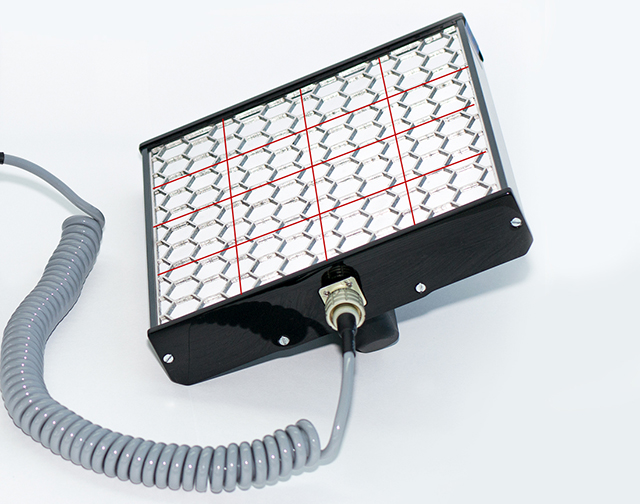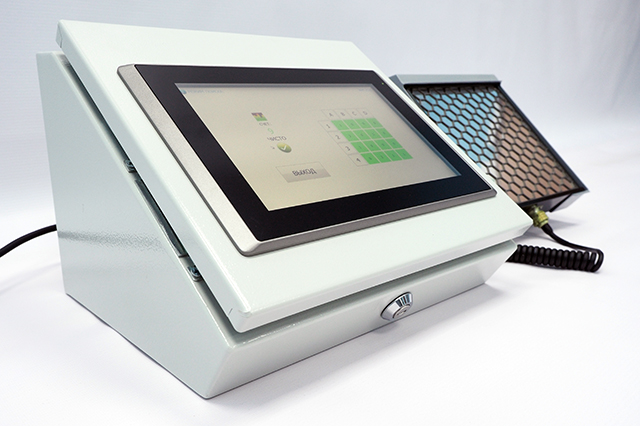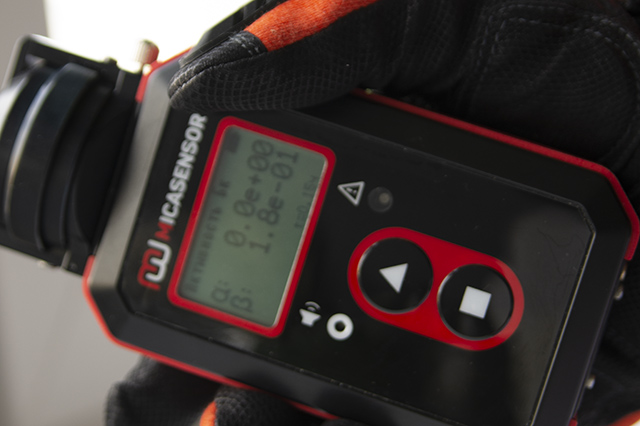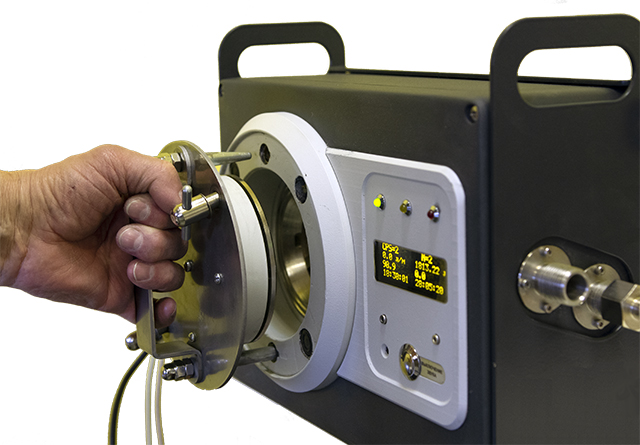miHands-21 hands/foot Contamination Monitor
Functional Highlights
- Ease of contaminant location with 5 cm x 5 cm cell resolution
- Adjusts to varying background
- May operate seamlessly without the need of personnel
- Ability to network and remote operation
- Automatic direct translation into Bq/cm2 for preprogrammed nuclides
- Modular configuration: continues to work even after several detectors fail
- Easy-to-use tough screen GUI
- Can be also used as a frisker probe
- USB, Ethernet, RS 232 and RS 485 interface
Typical Applications
- Nuclear Power Plants
- Gas and oil industry
- PET facilities
- First responders and Civil Defense
- Disaster Control and Emergency Centers
- Nuclear Medicine
-
Description
The miHands-21 hands/foot and surface contamination monitor is an ultimate tool to perform fast measurements of surface contamination by alpha and beta emitting radionuclides on foot, hands and cuffs. The monitor automatically detects presence of person and start measuring algorithm. Minimum detectable thresholds may be set up by operator individually for each detector assembly. In case of contamination is detected the monitor will provide visual and audio alarm as well as store information in the database or send over the network. Optionally, the monitor can be equipped with additional frisker probe for detection of contamination on clothes.
The monitor is built to comply with IEC 61098 international standard and is efficient and reliable tool in a variety of applications. Model is especially useful for nuclear industry, oil gas and mineral processing companies, within controlled areas of NPPs and in radioactive waste management. It can be also used in case of emergencies and nuclear accidents for first responders and civil defense to avoid spread of contaminants outside the controlled area.
-
Operation
The Micasensor miHand-21 hands and foot monitor uses an established technique for monitoring alpha and beta radiation simultaneously. The background radiation is continuously monitored for each detector when not being used to compensate the measurement. As soon as occupancy sensors detect the object in the measurement area, the measurement begins and the long-term average background is subtracted to minimize measurement uncertainty.
A proprietary algorithm is used to achieve the shortest measurement time and thereby the highest throughput. The measurement time can also be set by the operator to meet the local standards. Measurement results are stored and can be exported via RS-485 Modbus RTU or Ethernet, for records and analysis. A personal identification is also possible by means of an optional ID card reader.
-
Detectors
The unique operational advantage of the miHands-21 is ability to detail contamination as low as 5 by 5 cm square areas due to the use of multiple smaller individual detectors housed in one large probe. Search alarm algorithms are also designed to run individually for every smaller detector as well as the entire probe area with the gross count rate algorithm. This makes it equally easy to find small contamination spots with high activity and distributed low activity contamination.
As a result the state-of-the-art Micasensor's detector technology provides some of the industry’s lowest area of dead zones over the entire detector's surface area. This brings an outstanding sensitivity with an exceptionally high measurement homogeneity.
-
Specifications
Radiological Measurement range: - alpha
- beta
from 1 to 5x105 cm-2min-1
from 1 to 5x105 cm-2min-1Contamination measurement range for 90Sr/90Y: from 3 to 1,5x106 Bq cm-2 Accuracy for 90Sr/90Y measurement: ± (15%+30/f), where f - is the value of measured contamination activity Typical 2π efficiency for beta contamination measurement, detector grill: – 90Sr/90Y:
– 204Tl:
– 36Cl:
– 60Co:
58%
36%
33%
15%Energy range: - alpha
- beta
from 3 to 9 MeV
from 50 keV to 3 MeVDetector Probe Detector: Thin plastic scintillator Window area: 400 cm2 Window: 0,35 mg/cm2 aluminized mylar with protective grill Grill transmission: 90% Size: 215x214x42 mm Weight: 1,5 kg General Operation: 24 hours continuous Reading instability (for 24 hours operation): less then 5% Power requirements: AC 90-240 V, 50-60 Hz Power consumption, not more: 110 VA Communication interfaces: RS-485, Ethernet Environmental Temperature range: +5 °C to +50 °C Humidity: up to 75% at 30 °C, non-condensing Pressure: from 84 to 106,7 kPa Ingress protection: IP54
Recommended Products
miCont-130 Contamination Monitor
Easy to use compact surface contamination monitor for simultaneous search and measurement of alpha/beta contamination
miCAM-micro personal CAM/Dosimeter
Compact and lightweight dosimeter of internal exposure caused by inhalation of alpha- and beta- active aerosols.
m-Iodine-101 Radioiodine Monitor
Continuous measurement of volumetric activity of radioactive iodine isotopes in both molecular and organic forms contained in air of working areas






